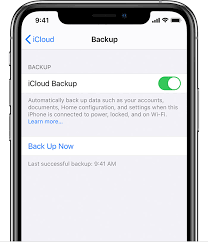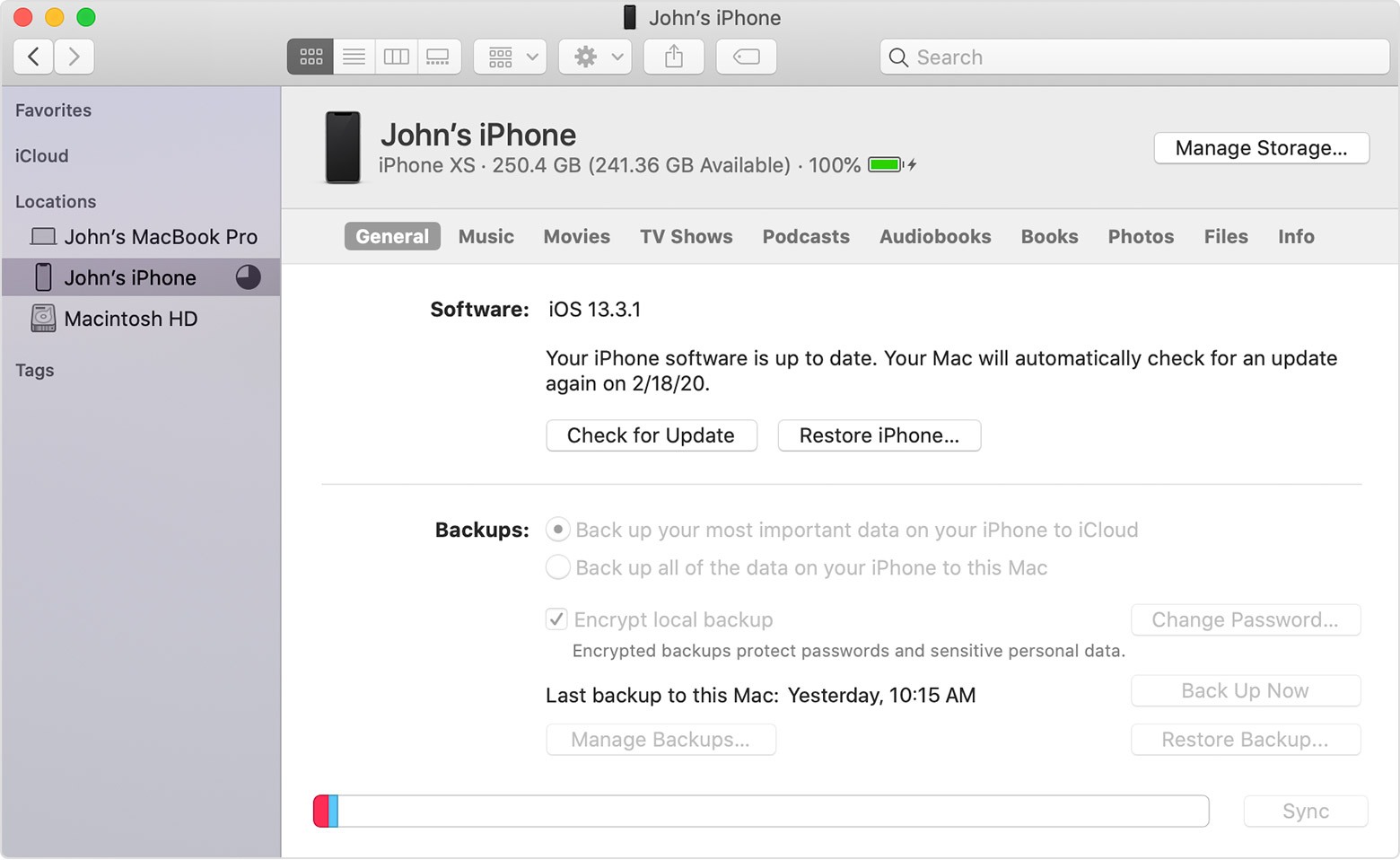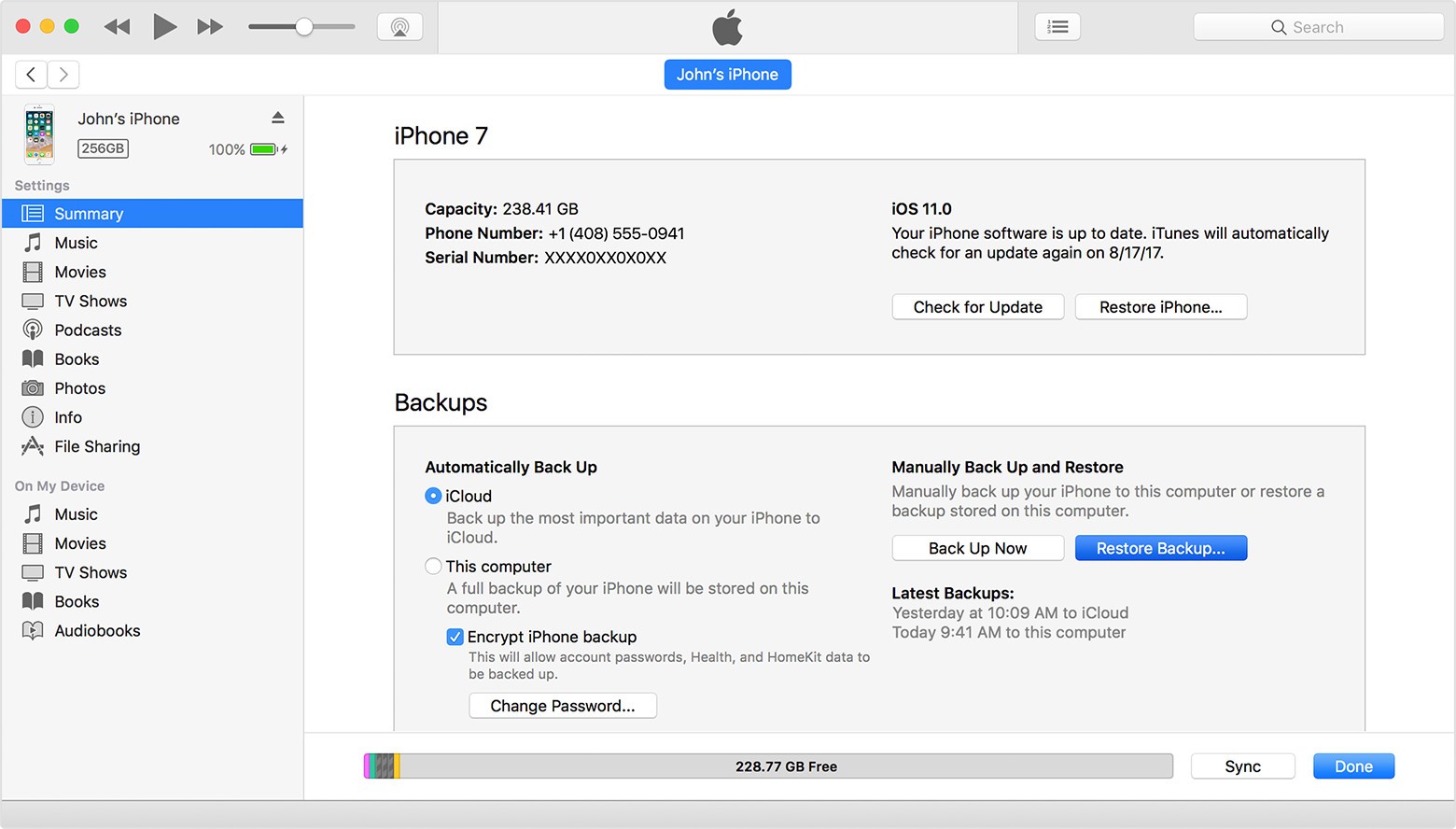Your iPhone is a storehouse of important contacts, messages, precious photos, memorable videos, and other crucial data. And you want to keep this data forever. But someone rightly said, ‘There are two kinds of computing devices, those that have failed and those that will fail!’
This aptly explains the necessity of backup of your iPhone. Sudden technical glitches can result in iPhone data loss anytime. So to be prepared, backup is the way to go.
Here we will share in detail how to back up your iPhone 12, iPhone 12 Pro, iPhone 11, iPhone XS, iPhone SE, iPhone XR, iPhone 8, iPhone 7, and others.
You can apply the backup solutions in all iOS versions, including the latest 14, 13, 12, and below.
如何backup iPhone data?
Apple provides two ways to back up your data — iCloud and iTunes. iCloud lets you save the iPhone and iPad data to cloud servers, while iTunes is the local iPhone data backup created on your computer.
Let’s know in detail how to backup iPhone data using each. Also which is better among the two.
Back up iPhone with iCloud
You can enable automatic backup of your iPhone data using Apple’s iCloud services. iCloud can store iPhone’s photos, videos, contacts, and other important data securely on remote Apple servers. The cloud not only backs up but also syncs data across your devices — iPhone, iPad, and Mac.
The solution helps torecover lost data in case of broken iPhone, theft, or deletion etc.
You just need to turn on the iCloud backup in your iPhone settings. Make sure your iPhone is fully charged and connected to Wi-Fi until the backup process finishes.
如何back up iPhone to iCloud
1. On your iPhone, click to openSettings>your name>iCloud
2. Toggle oniCloud Backupto allow iCloud to automatically back up your iPhone whenever it is on and connected to Wi-Fi.

3. Click onBack Up Now.Make sure your iPhone is connected to Wi-Fi throughout the process.
Torestore lost iPhone data from iCloud backup, you can either use iCloud.com on your computer browser or retrieve through‘Settings’on iPhone or iPad.
What does your iCloud back up?
iCloud can back up almost all your iPhone data. You can backup Contacts, Calendars, iMessages, texts, MMS, Photos, Videos, Bookmarks, Notes, Voice Memos, Ringtones, etc. using iCloud.
It can also backup App data, Apple Watch backups, iPhone settings, purchase history of music, movies, TV shows, apps, podcasts, and books from Apple Store, iTunes, and iBook.
How much data can iCloud store?
You can back up to 2 TB of storage on iCloud. The first 5 GB storage is free. In case you require additional iCloud storage, upgrade for a fee. Apple offers upgrade plans of 50 GB, 200 GB, and 2 TB.
Back up iPhone with iTunes
You can choose to back up iPhone data on your PC or Mac using iTunes backup service. iTunes local backup on drive is faster to restore than iCloud backups.
To back up iPhone, ensure you have the latest iTunes on your system. Windows PC users can download the latest version of iTunes from Microsoft Store orApple support site. Mac computers already have iTunes installed on them.
如何back up iPhone on Mac using iTunes:
- Connect iPhone to your Mac using USB. If a message prompts for device passcode, enter it. If it prompts toTrust This Computer, follow the onscreen steps.
- Launch iTunes, select your iPhone from the sidebar.
- ClickGeneraltab.
- SelectBack up all of the data on your iPhone to this Mac.
- If you want to encrypt your backup data, selectEncrypt local backup.
- Enter a password.Warning:If you forget your iTunes backup password, you won’t be able to access your backed-up data.
- ClickBack Up Now.

You can restore iPhone data from iTunes backup anytime on your PC or Mac. The solution is helpful torecover lost data after iOS updateiPhone屏幕上休息,工厂重置和其他data loss situations.
Also read:如何Retrieve a Forgotten iTunes Backup Password?
如何back up iPhone using iTunes on Windows PC
- Connect iPhone to your PC using USB. If a message prompts for device passcode, enter it. If it prompts toTrust This Computer, follow the onscreen steps.
- Launch iTunes, select your iPhone.
- ClickSummaryin the sidebar.
- On the right panel, clickBack Up Nowbutton. If you want to encrypt your backup data, selectEncrypt local backup. Set a password.
- ClickBack Up Now.

What data can iTunes back up?
iTunes can back up all important data on your iPhone. You can save photos, videos, music, ringtones, contacts, call log, iMessage, SMS, Notes, voice memos, voicemail, Calendars, Safari bookmarks, Network settings, WhatsApp chats, WeChat, FaceTime, and other data.
Activity, Health, and Keychain data can be backed up using an encrypted iTunes backup feature.
Note:iTunes won’t back up data from iTunes store, App Stores, Apple Pay information, Apple Mail data, PDFs downloaded from Apple Books, Face ID or Touch ID settings, and all that data, which is already stored in iCloud.
Which is better: iTunes or iCloud backup
Both iCloud and iTunes backup solutions by Apple are secure and reliable. However, each has its advantages.
iCloud backup is paid after a free 5 GB limit, consumed very soon as you save photos and videos. iTunes backup storage limit depends upon the free space available on your computer.
iCloud is mostly preferred as you can access it anytime, anywhere from your iPhone, iPad, or laptop with a Wi-Fi connection. While you can only access iTunes backup on your iPhone’s trusted computer.
Both backup solutions have their own benefits. Choose the one based on your ease of use .
Unable to recover iPhone data from iCloud or iTunes?
If you aren’t able to restore iPhone data from iCloud or iTunes or don’t find the desired photos, videos, contacts, or messages, etc., seek help ofStellar Data Recovery for iPhone. The software helps to recover lost or deleted data from iPhone, iPad, iCloud, and iTunes backup. You can also select and restore only what you wish to restore, rather than downloading the complete backup file. The iPhone recovery software restores data without deleting the iPhone’s current pictures, contacts, settings, etc.
Conclusion
Back up is the best way to protect your data from loss in any adverse situation such as iPhone theft, broken, misplaced, iOS crash, factory reset, etc.
You can enable iCloud data backup and automatically back up your iPhone over Wi-Fi. While you need to manually back up your iPhone on PC or Mac using iTunes.
Use either the iCloud or iTunes backup. Both have their advantages. Finally, decide between iTunes or iCloud backup based on your convenience and ease.











